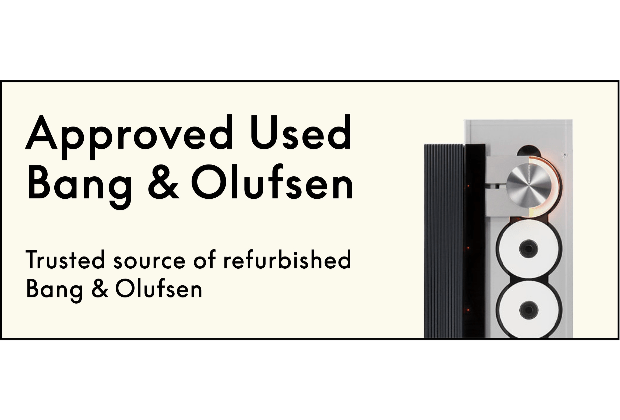- This topic has 3 replies, 4 voices, and was last updated 1 year, 2 months ago by
Dillen.
- AuthorPosts
- 16 April 2022 at 09:29 #34219
Hello Beoworld,
I would like to know if I should restore the crossover in my Beovox Pentas with new electrolytic capacitors or upgrade to a mix of electrolytic and MKP capacitors?
I have the Beovox Penta MK1 Type 6611, and have read somewhere that the Beovox Penta can have both MK1 and MK2 types of crossovers, and that the Beolab Penta MK3 crossover is the same as in MK2.
I have not opened my Pentas to see which type of crossover I have, and before I do so to restore or upgrade the crossover, I would like to know which of the MK1 or MK2 type of crossover is considered the best or most balanced?
I have found the two types crossovers in the service manuals for the Penta MK1 vs MK2:
(1) Beovox Penta MK1 Type 6611 / Beolab Penta MK1 Type 6601.
(2) Beolab Penta MK2 Type 6621.
(all Danish model types).
I would also like to know if an improvement can be done by upgrading vs restoring capacitors and if you can recommend not too expensive brands of electrolytic and MKP capacitors?
I have inserted the two types of crossovers, as well as compared and marked the changes, see pictures below.
Best regards,
Jens
Penta MK1 crossover (Beovox Type 6611 & Beolab Type 6601):
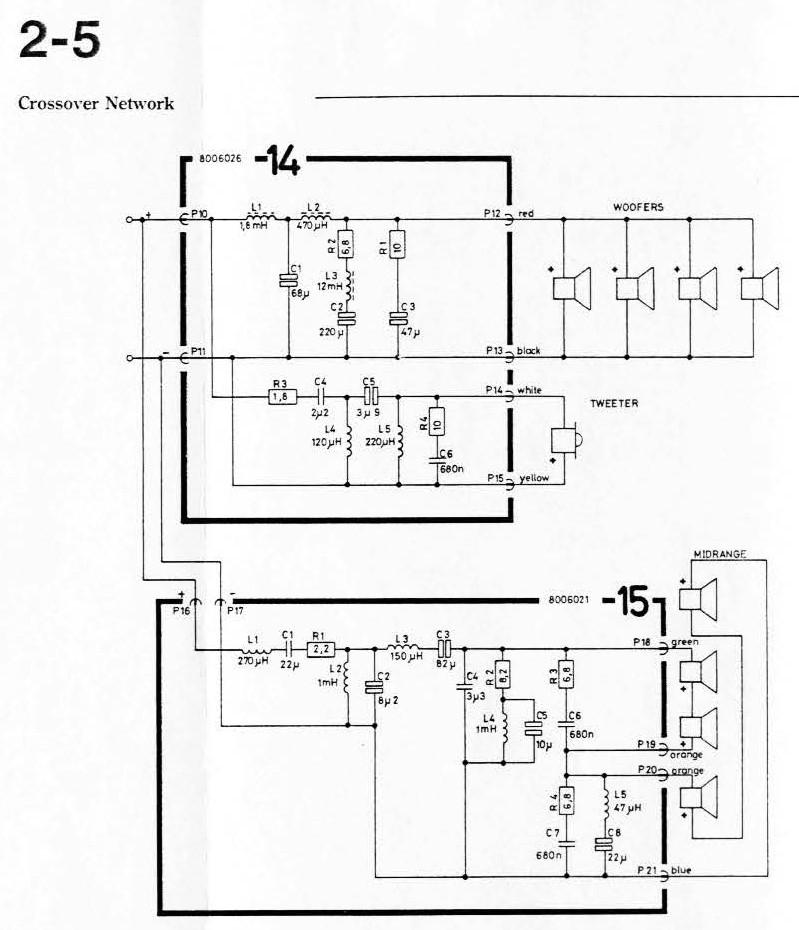
Penta MK1 crossover changes compared to MK2:
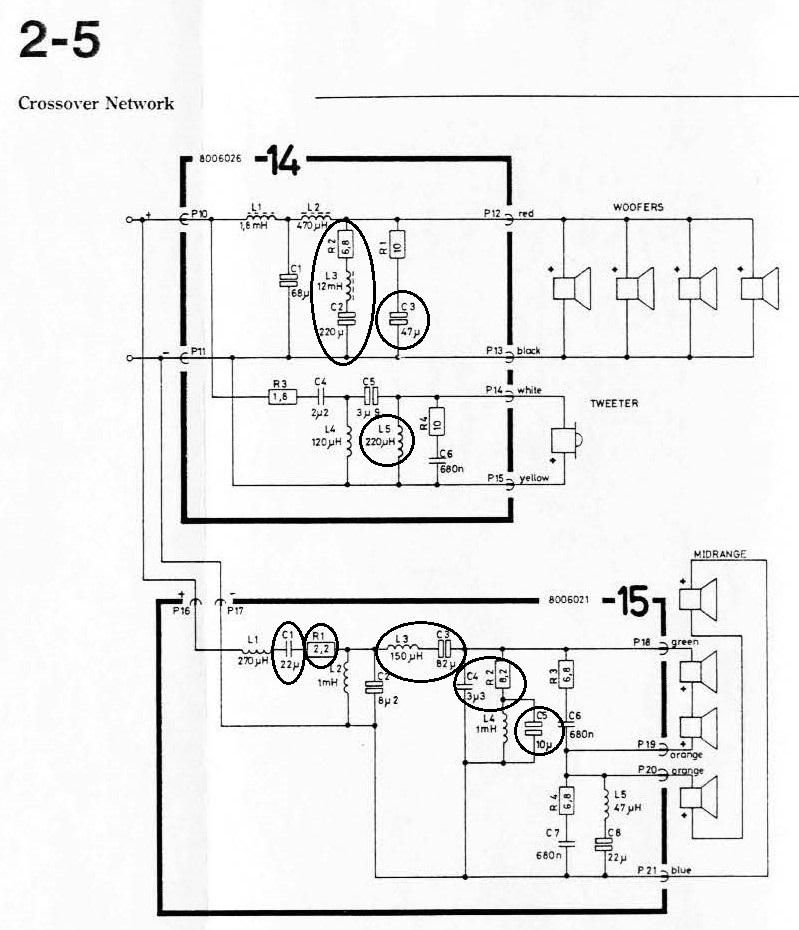
Penta MK2 crossover (Beovox Type 6611 & Beolab Type 6621):
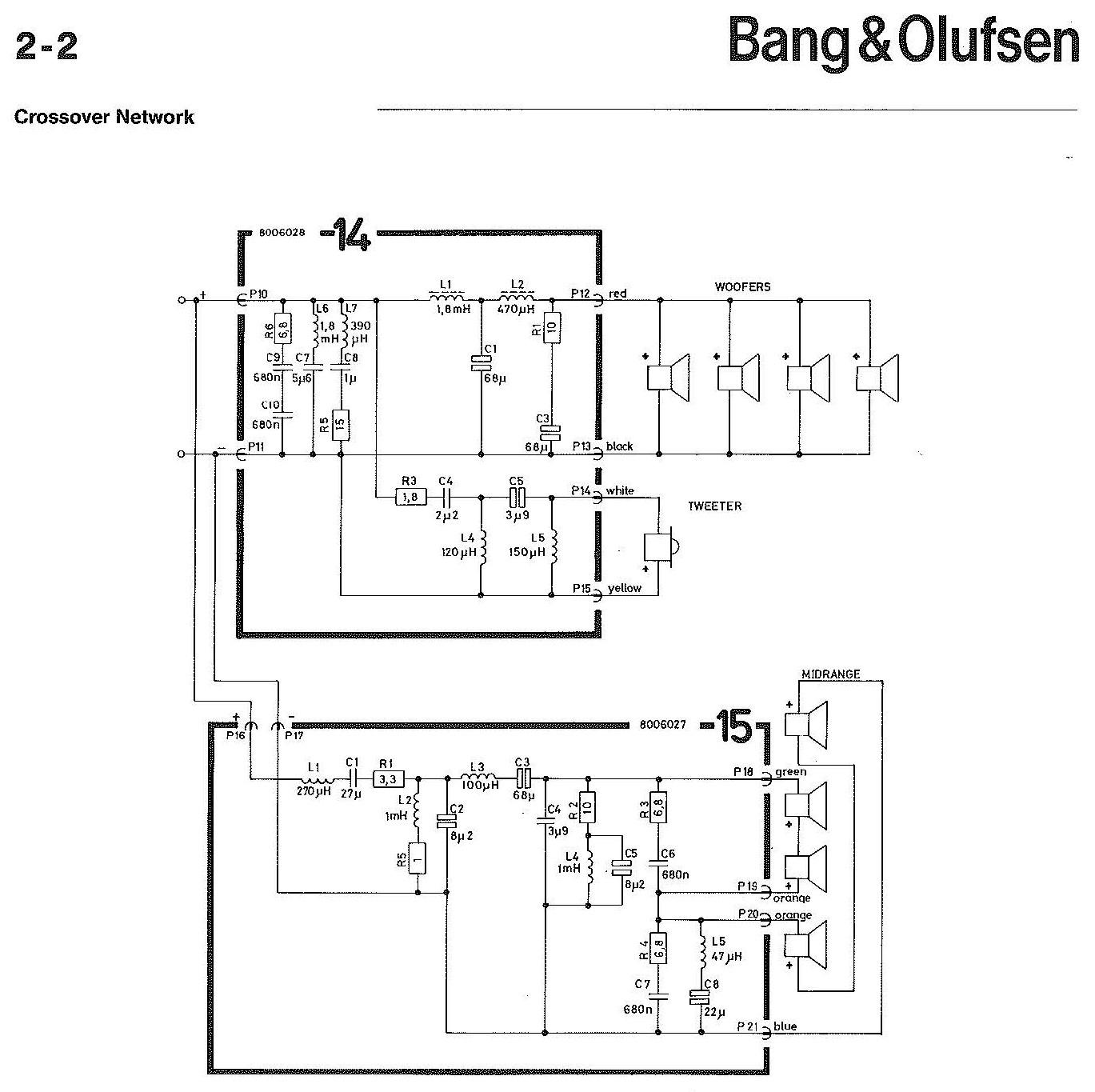
Penta MK2 crossover changes compared to MK1:
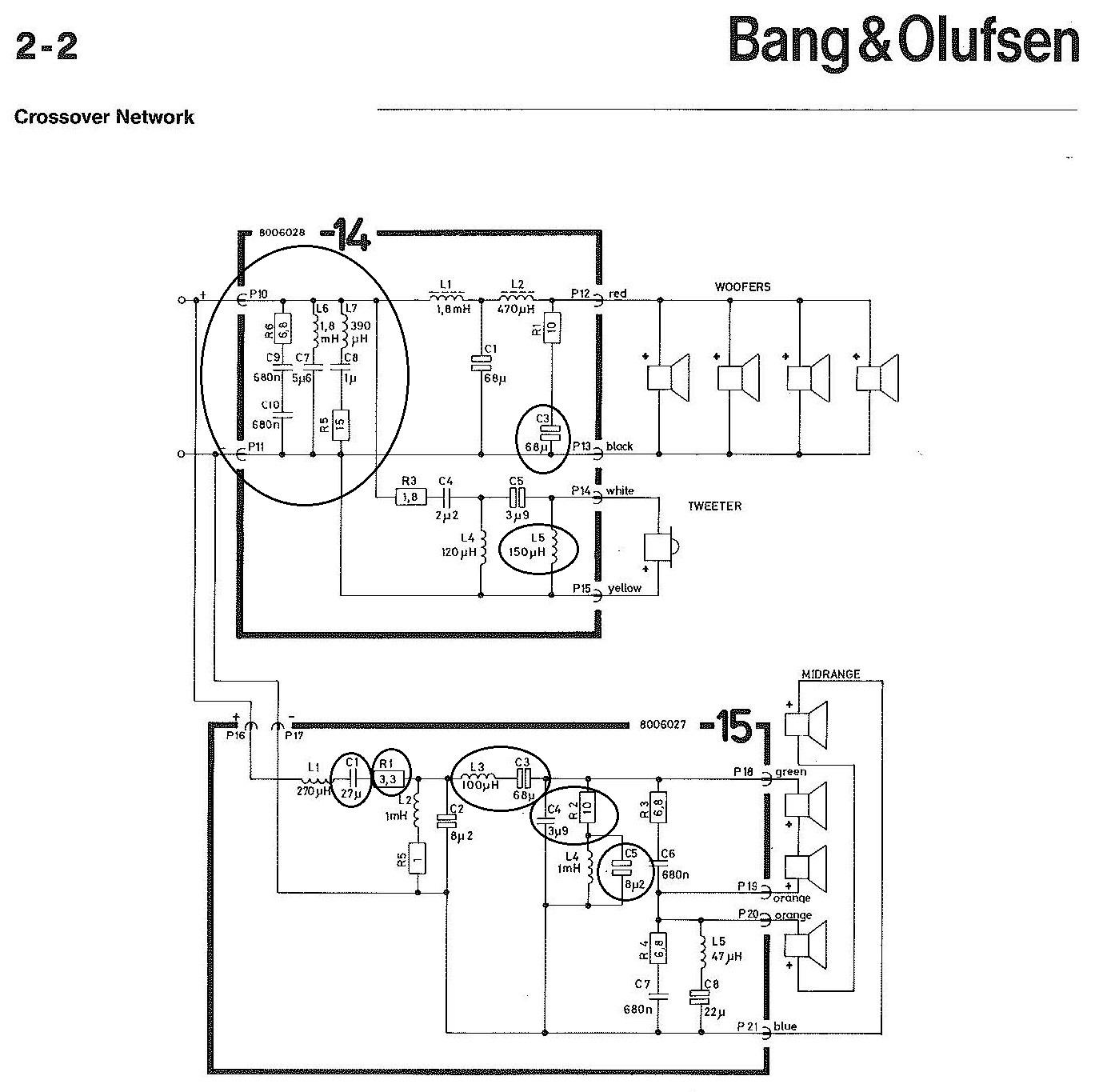 17 April 2022 at 02:17 #34220
17 April 2022 at 02:17 #34220It is not recommended that you switch topology types as many of those changes are in notch filters and B&O likely had different drivers or a different batch that needed compensation. As far as parts quality, since all bands are in parallel and there are a lot of parts, I would focus on replacing any electrolytics in the mid and tweeter circuits with poly caps as it does not appear there are any iron-core inductors in there. Check out either the Dayton or Fast PA Series from Solen. I have had excellent results with these.
2 December 2023 at 06:08 #342213 December 2023 at 10:52 #34222Keep in mind, that if you replace electrolytic capacitors with any other type,
the new capacitors ESR will be (often very!) different – typically lower, leading to
different filter characteristics (and potentially other issues).
In speaker crossovers this will in many cases require a new calculation of the
filters, as the ESRs (equivalent series resistances) will have been taken into account in the original calculations as the (frequency dependent) resistors, they are.This is often the reason why owners experience, that their speakers sound “different” after changing capacitor types. The change in sound comes, not as much from the change in
type of capacitor, but from the fact that the filter properties were changed.Removing a few ohms ESR in f.e. a series capacitor for a 4 ohms tweeter, makes a lot of difference!
– Also for the load put on the tweeter, – that may not agree that it was such a great idea.The general speaker impedance etc. will also be different (typically lower!).
Martin
- AuthorPosts
- You must be logged in to reply to this topic.





